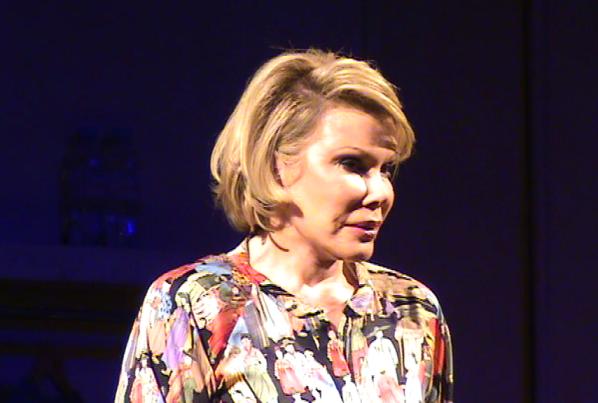








Joan Rivers was a trailblazing comedian and television personality known for her sharp wit, groundbreaking career, and influence on future generations of comedians. Her legacy continues to resonate in the entertainment industry, showcasing her resilience and fearless approach to humor.
The Rise of a Comedy Icon
Joan Rivers, born Joan Alexandra Molinsky on June 8, 1933, in Brooklyn, New York, began her career in the 1950s when the comedy landscape was largely dominated by male figures. Her journey to stardom was fraught with challenges, but her relentless spirit and unique voice carved a niche for her in the male-dominated industry.
- Early Influences: Rivers was influenced by the comedy of Bob Hope and the theatrical performances of her mother. She attended Barnard College, where she studied English and anthropology, a foundation that would inform her comedic storytelling.
- Breakthrough Moments: In 1965, Rivers made her television debut on "The Tonight Show," captivating audiences with her edgy humor. She became a regular guest, ultimately leading to a close friendship with host Johnny Carson.
The Bold and the Beautiful: A Fashion Trailblazer
Beyond her comedy, Joan Rivers was known for her extravagant sense of fashion. She revolutionized red carpet commentary by blending humor with critical fashion assessments, turning her into a household name.
- Fashion Police: Rivers launched "Fashion Police" in 2010, a show that dissected celebrity outfits with her signature wit. This program not only showcased her love for fashion but also influenced how audiences engage with celebrity culture.
- Jewelry Line: Rivers capitalized on her fashion credibility by creating a successful jewelry line, which became popular for its affordability and style. Her tagline, “Can we talk?” became synonymous with her candid approach to style.
A Life of Resilience and Controversy
Joan Rivers was no stranger to controversy, often pushing boundaries with her humor. Her willingness to tackle sensitive topics made her a polarizing figure, yet she remained unapologetic about her comedic style.
- Addressing Taboo Subjects: Rivers often spoke about topics like aging, plastic surgery, and personal loss, using humor as a coping mechanism and a way to connect with her audience. She famously said, “I succeeded by saying what everyone else is thinking.”
- Personal Tragedies: Her life was marked by personal tragedies, including the suicide of her husband, Edgar Rosenberg, in 1987. Rivers channeled her grief into her work, often reflecting on her experiences through her comedy.
The Impact on Future Generations
Joan Rivers' influence on comedy is undeniable. She paved the way for future generations of female comedians, proving that women could be just as funny and sharp as their male counterparts.
- Mentorship: Rivers mentored a number of young comedians, including Melissa McCarthy and Kathy Griffin, encouraging them to embrace their unique voices and push boundaries.
- Cultural Significance: In a time when women were often relegated to secondary roles in comedy, Rivers broke through barriers, allowing for a richer diversity in comedic voices. Her legacy is evident in the success of modern female comedians who cite her as an inspiration.
The Final Years: A Legacy Remembered
Joan Rivers continued to work in television and film until her passing on September 4, 2014. Her death was met with an outpouring of love and respect from fans and fellow comedians alike.
- Posthumous Honors: Rivers was posthumously honored with numerous accolades, including a star on the Hollywood Walk of Fame and induction into the Broadcasting and Cable Hall of Fame.
- Continued Influence: Her life was celebrated in documentaries and tributes, such as the 2015 film "Joan Rivers: A Piece of Work," which offered an intimate glimpse into her life and career.
Conclusion: A Forever Icon
Joan Rivers’ legacy is one of resilience, humor, and unabashed authenticity. She remains a seminal figure in the world of comedy, a pioneer who broke down barriers and redefined what it meant to be a female comedian.
- Cultural Reflection: Rivers taught us that humor can be a powerful tool for reflection and change. Her career serves as an enduring reminder that laughter can emerge from even the most difficult circumstances.
- Inspiration for the Future: As we look to the future of comedy, Joan Rivers’ influence will undoubtedly continue to inspire new generations to embrace their identities, challenge societal norms, and, most importantly, never stop laughing.
In sum, Joan Rivers was not just a comedian; she was a force of nature whose impact on the entertainment industry and culture continues to resonate today.
